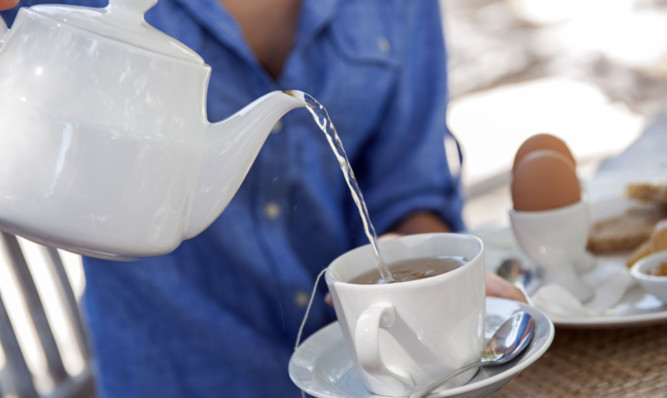
A storm is brewing over the price of a cuppa.
Tea-lovers could be forced to pay up to around 10% extra per tea bag all thanks to the Arab Spring.
Demand for tea is booming in Egypt following the political upheaval there in 2013.
Since its economy stabilised, buyers from the North African country have been snapping up tea stocks from around the world.
The price of Kenyan tea has been falling in recent years, but the tide has turned and prices are up by 10% in the last month from £1,300 a tonne to £1,566.
Around half the tea drunk in the UK comes from Kenya and experts believe rising prices in the African country will put pressure on tea prices in the supermarket.
“Prices have begun to recover as demand for lower price Kenyan tea increases from consumers including Pakistan, Afghanistan and Egypt,” explained commodities analyst James Hutchings.
Buyers from Egypt stayed away from the tea market during the Arab Spring in 2013, when the country’s regime was overthrown.
The situation in Egypt has stabilised, however, and buyers are snapping up the cheaper Kenyan tea leaves.
Buyers from Muslim countries are snapping up tea stocks following the end of Ramadan too.
Stocks of tea are also beginning to dwindle following two cool months in Kenya in June and July.
The rising prices are a worry for UK tea giants PG Tips and Typhoo.
“Stockholdings in certain areas have come down,” said Typhoo chief executive officer Keith Packer. “There was a large production excess at the end of last year and that has taken some time to get through.”
Packer confirmed that prices of raw tea would continue to rise gradually thanks to lowered stock levels and rising demand.
On Wednesday, the maximum price of Kenya’s highest-quality tea rose again, according to the Africa Tea Brokers (ATB).
Meanwhile attacks by Islamic militants in Kenya could push prices up even further.
The al-Qaeda-linked militia, al-Shabaab, which raided a shopping centre in the Kenyan capital of Nairobi last September, has launched attacks on port cities in attempt to disrupt trade in the region.
Recent assaults include a raid in June by gunmen that killed 60 residents of the coastal town of Mpeketoni.
UK citizens have been told to avoid Kenyan port cities such as the country’s largest tea-exporting port, Mombasa.

Enjoy the convenience of having The Sunday Post delivered as a digital ePaper straight to your smartphone, tablet or computer.
Subscribe for only £5.49 a month and enjoy all the benefits of the printed paper as a digital replica.
Subscribe